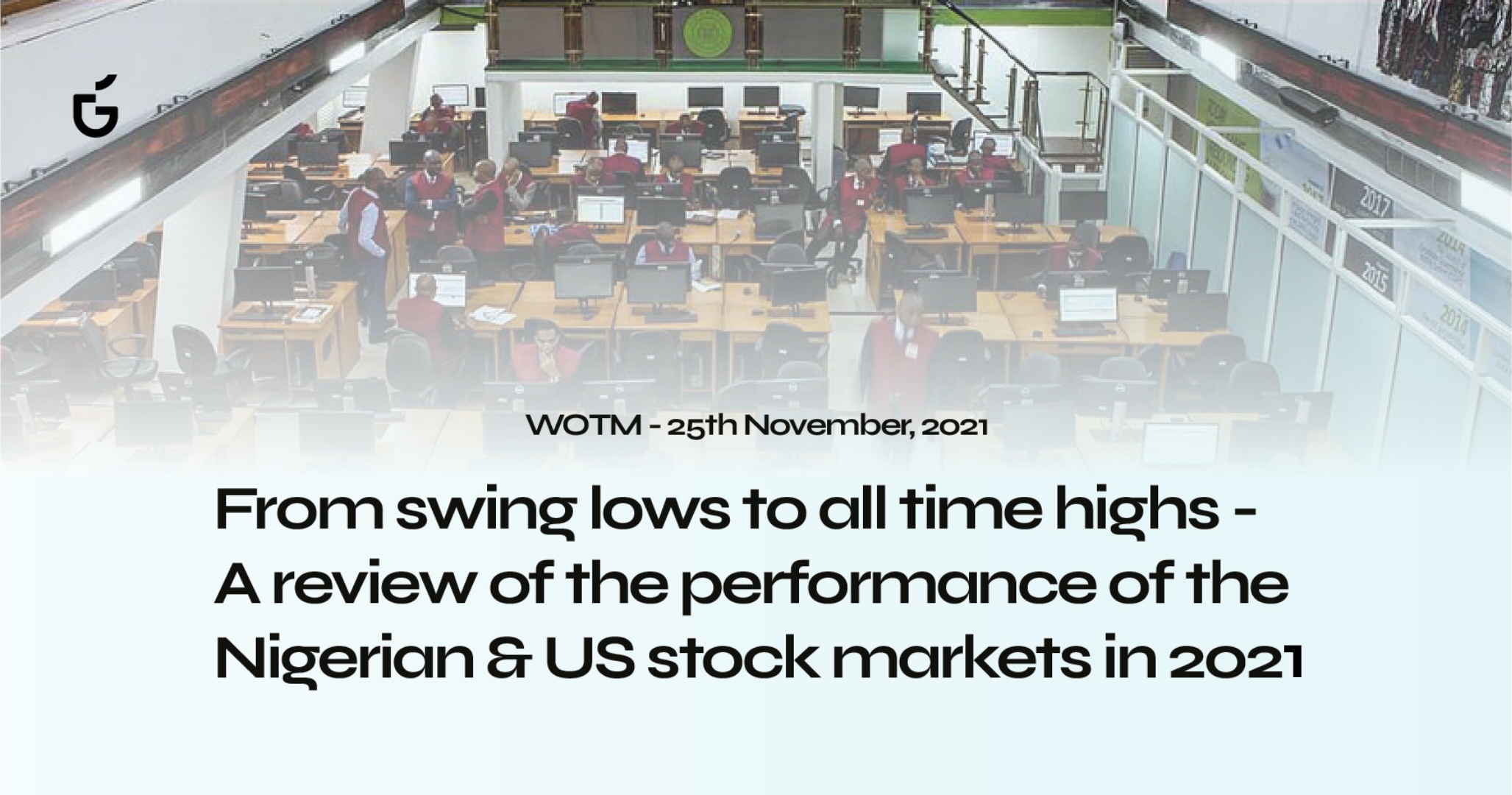 Africa
AfricaUnderstanding how companies are valued – A look into the MainOne acquisition
15 December, 2021
14 April, 2021 | 4 MINS READ
The Story
There has been a lot of talk about the disparity in the price of a bag of Dangote Cement. There are claims that the price of a bag of Dangote cement in Nigeria is higher than it is in other African countries. The management of the company cleared the air on this issue on the 13th of April 2021, stating expressly that cost of production has increased significantly due to the devaluation of the Naira.
Here we go again! Another effect of the Devaluation of the Naira.
Devaluation is the intentional reduction of the value of a country’s currency against other currencies in a bid to make it for more attractive for trade. It is a tool used by the monetary authorities (CBN in this case) to improve a country’s trade numbers.
When a country devalues its currency, it makes its exports cheaper in the international market, making it more attractive to importers/buyers of its produce. Exporting countries like Japan and Switzerland are known to regularly devalue their currency in a bid to push up their trade numbers and foreign exchange earnings.
Nigeria is not a country with strong exports, so why do we keep devaluing the Naira?
Great question! Nigeria imports a whole of consumer items which make sit quite dependent on external imports. An import dependent country devalues its currency when there is a decline in its foreign exchange earnings. In simple terms, here is what devaluation does for an import dependent economy; devaluation of a currency means local importers will need more of the local currency (In this case, Naira) to buy foreign products. This would automatically drive up prices as foreign products become more expensive.
Ideally, the increase in prices should lead to a decline in demand for foreign products and redirect demand to local substitutes, thereby boosting local production of goods and services. Basically, devaluation is done in an import dependent country to reduce the demand pressure on foreign earnings and improve appetite for local produce.
However, local production suffers due to low infrastructure development in Nigeria. Another challenge with Nigeria is that raw materials used in production are not processed locally, most raw materials are processed outside the country, so devaluation actually makes local products expensive in Nigeria instead of less expensive as the inputs used in the production of these goods are imported.
The big question remains, will the Naira keep getting devalued?
Nigeria has a unique case, its major source of foreign earnings is a commodity (oil) whose price is determined by the forces of demand and supply, meaning it has no control over price. So, its currency, the Naira is vulnerable to the dictates of oil prices in the international market. When oil prices are up, the Naira is stable but when oil prices are volatile like we’ve seen in the past 12-15 months, the Naira suffers.
Ideally, the solution to this would be to invest significantly in processing raw materials locally and repositioning other sectors of the economy to earn from exporting. This actions would boost the country’s foreign exchange earnings and improve the demand for the Naira.
Unfortunately, the lack of political will on the part of the federal government has kept the Naira in doldrums. The government’s unwillingness to also aggressively build other streams of income in addition to crude oil proceeds already tells us history might just repeat itself.
But never say never, we may see an improvement in the value of the Naira as we progress further into 2021, we expect the intensive vaccination exercise to open more economies around the world and temporarily increase the demand and price of oil. Looking beyond 2021, 2022 is a pre-election year in Nigeria. And trends show heavy spending on campaigns and appeasing the electorates in pre-election year. This usually translates to economic austerity after a new government assumes office (especially in seasons of low oil prices).
How Does this affect my investment portfolio?
Currency devaluation reduces the value of a currency. As an investor investing in Naira, the real returns on your investment reduces whenever the Naira is devalued.
How Do I Protect My Portfolio?
To protect your portfolio, you’ll have to invest in assets that yield high returns or assets denominated in more stable currencies. Some of these assets are:
Equities: Equities are popularly called shares/stocks. They are known to give high returns to investors who hold them over a period. There are two ways of earning from equities. Through dividends which are a distribution of part of a company’s profit to shareholders and through capital appreciation which is an increase in price of the shares of the company invested in.
Though equities give high returns, they are also known for being risky, economic/political situations and company financial performance influence the movement of share prices. Their venerability to the above factors makes them a tad bit unpredictable and risky. Hence, it is important that you seek the advice of a financial expert before venturing into the stock market.
Dollar Assets: Another way to defend your portfolio against devaluation is to hold assets that are denominated in stable currencies in your portfolio one of which is the dollar. The dollar is one of the most stable currencies in the world, in fact, it is a safe haven currency ( a safe haven currency is a currency that is stable in times of economic uncertainties and so investors buy assets denominated in this currency whenever there is a shake up in the world economy)
Other investment options open to investors looking to protect their portfolio from devaluation are: venture capital funds and Agric-finance projects. Both require that you do your research and fully understand how they work before you invest in them as they both come with some measure of risk.
Members of TGIC have access to detailed information on the workings of all these assets. Please note that we are not taking new members at the moment, you can sign up the waitlist to get our email once we open up to new members.
 Africa
Africa15 December, 2021
 Africa
Africa09 December, 2021
Join the biggest
investment club in Nigeria.